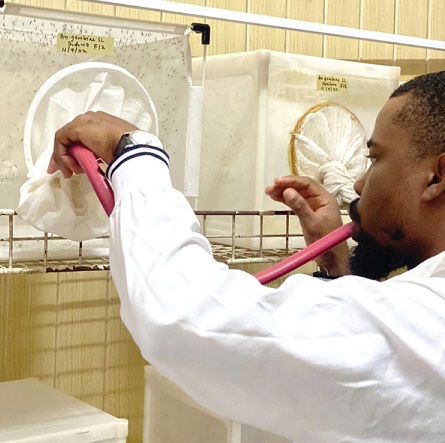
GAEC researches into mosquito breeding sites at Kwabenya
The Biotechnology and Nuclear Agriculture Research Institute (BNARI) of the Ghana Atomic Energy Commission (GAEC) has started a research into mosquito breeding sites at Kwabenya, a suburb of Accra.
The research, which forms part of this year’s annual Malaria Awareness Campaign of GAEC, will help develop malaria control measures for the area.
Advertisement
The two-week research exercise, which started last Thursday, will assess bed net ownership and usage among the residents of Kwabenya.
A statement signed by the acting Director, Commercialisation and Communication Directorate of GAEC, Sheila Frimpong, quoted the Director of BNARI, Dr Michael Osae, as saying research had shown that urban areas were highly effective breeding grounds for mosquitoes, increasing the likelihood of disease transmission.
This year’s campaign, the statement explained, was targeted at the people of Kwabenya and its environs because the community had hosted the commission for decades, hence the annual exercise was a reciprocal gesture in appreciation of the support the people had given to the commission.
Activities
Throwing light on some key activities of this year’s campaign, the statement said there would be an awareness durbar to educate some community schools at Kwabenya and its environs on malaria prevention and control.
There would also be a free health screening exercise for school pupils and teachers at Kwabenya and its environs and the screening would be for malaria and other health conditions alongside receiving free consultation and drugs at the event.
It said the campaign was expected to end on May 31, with a public lecture on “What you need to know about malaria”.
Malaria prevention
Explaining the rationale behind the annual campaign, the statement said it was to empower communities towards malaria prevention and control and help solve the problem of malaria through research-driven solutions.
“Indeed, disease-carrying mosquitoes in dense human populations pose a serious threat to public health. Last year, we were at Atatam in the Adansi Asokwa District in the Ashanti Region where our research found out that there were two main types of malaria-causing mosquitoes in the Atatam community — the Anopheles gambiae and the Anopheles funestus,” the statement said.
It added that both species had high resistance to all classes of insecticides — organophosphates, organochlorines, pyrethroids and carbamates — recommended by the World Health Organisation for public health use.



